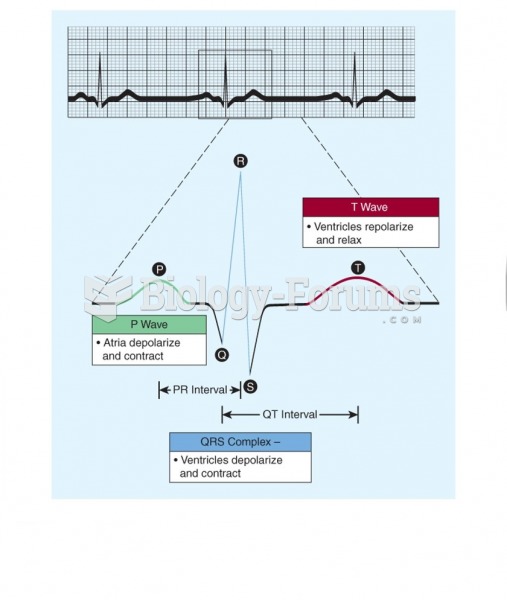|
|
|
Medication errors are more common among seriously ill patients than with those with minor conditions.
Colchicine is a highly poisonous alkaloid originally extracted from a type of saffron plant that is used mainly to treat gout.
Blastomycosis is often misdiagnosed, resulting in tragic outcomes. It is caused by a fungus living in moist soil, in wooded areas of the United States and Canada. If inhaled, the fungus can cause mild breathing problems that may worsen and cause serious illness and even death.
If all the neurons in the human body were lined up, they would stretch more than 600 miles.
The eye muscles are the most active muscles in the whole body. The external muscles that move the eyes are the strongest muscles in the human body for the job they have to do. They are 100 times more powerful than they need to be.
 To maintain global power requires the continuous development of weapons. Shown here is the Osprey. ...
To maintain global power requires the continuous development of weapons. Shown here is the Osprey. ...
 If the needle drops 1 or 2 inches Hg from the normal reading, one of the engine valves is burned or ...
If the needle drops 1 or 2 inches Hg from the normal reading, one of the engine valves is burned or ...





